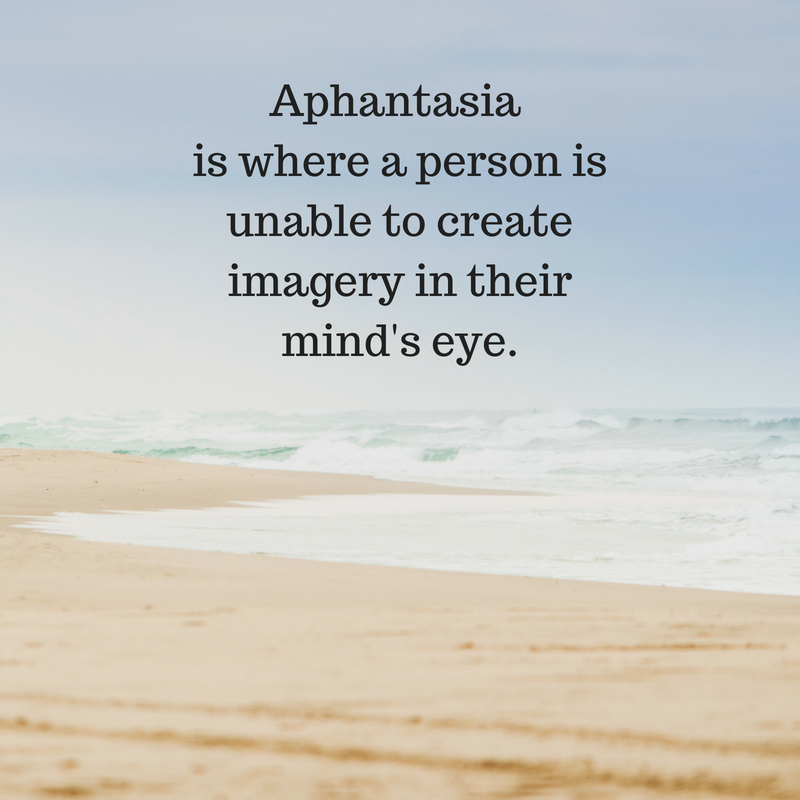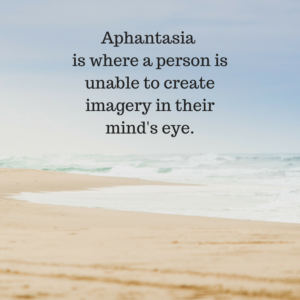It was fun getting responses from my last post about how I don’t have much of a visual imagination.
A good number of you wrote to say you could relate to it, and it’s always nice to find others who think like we do. 🙂
A few of you extra-visual types were suitably flabbergasted by the idea.
And I did get some interesting questions and comments.
Karyne: So when you’re reading a book, do you not care if things are described? Or do you just prefer the other senses get described?
Me: I don’t really care if they’re visually described. I’m much more interested in the mood of a book or a conversation than what it looks like where the characters are. I really skim visual descriptions.
Dana: You are probably never disappointed when you see a movie made based on a book that you have already read.
Me: This is totally true. I never have any idea what a character SHOULD look like, so I’m never disappointed by which actor they pick. Same goes for setting.
I AM disappointed if they change the feel of the book. They need to keep the emotional impact of the story the same.
Clara: So instead of creating a picture, you think of personality adjectives? So, do descriptions in books you read help you at all, or do you ignore them?
Me: I do tend to think about attitude and general expression and physique of characters instead of a detailed picture. And yes, I skim visual descriptions so much so that I have NO idea what people look like. Usually things like their size comes from the story (Can they fit somewhere small? Do they tower over people?), but hair color? Skin color? General facial shapes? No idea.
Lesly: I’m curious, if your mind doesn’t visualize through images…do you dream?
Me: I do dream. Often. And there is a visual aspect to them. Apparently it’s perfectly normal for people with aphantasia to have visual dreams.
I will say my dreams aren’t very visually detailed, but it’s not like I stumble around in darkness. I do see things. And my dreams do tend to include a lot of other sensory information. I almost always know the feel of something and the sound of something I’ve dreamed about.
Dr. Karen (regarding the exhibit at a museum where I had to recreate a face I’d seen): Agreed – this would be impossible for me! But it’s not facial recognition (which would be seeing a picture of the person, like your mountain pass). It’s facial recall – more like using the police artist. Recall and recognition are quite different, as brain activity goes.
As a reader, I’m like you – I get a sense of the personality, quality of movement, etc. of the person. Often I get jarred by a description later on (when I finally process it) that doesn’t fit my sense of the person.
Me: Yes! This is such a good point. I can recognize people. What I can’t do is recall their face when they’re not around.
Karyne: When you think of your kids and husband, do you think of smells and feelings instead of how they appear?
Me: My kids and my husband are the people I can visualize best…I can ALMOST picture them. Not quite, but almost. Although what I think of about them is more expressions and moods and posture and gestures than a specific visual image.
Margaret: I know it’s slightly different, but I suffer with quite bad arthritis. I always describe different types of pain in colour! Nerve pain, as in sciatica is white, bright, like fire. Muscle pain can be deep red, or bright red. You get the idea.
Me: This is interesting, and on a different end of the senses spectrum. It’s called synesthesia.
“Synesthesia is a condition in which one sense (for example, hearing) is simultaneously perceived as if by one or more additional senses such as sight. Another form of synesthesia joins objects such as letters, shapes, numbers or people’s names with a sensory perception such as smell, color or flavor.” – Neuroscience for kids
This post is already long, so I’ll sign off for the day. Thanks for all the questions and comments, and if you have more, feel free to send them!
Next time I promise I’ll talk about being a writer with aphantasia when the world wants to know what your story looks like.





part 3 please! i’m so invested now haha
Does your inability to visualize well influence your ability to remember a story in order: the plot of a book or movie, the story arc of your own life – if you don’t review an outline of it or keep a record of it? I tend to remember the feel of a book rather than the storyline, since details are retained and discarded by my mind at random, and people can very easily trip me up with history I’ve forgotten that “educated” people ought to know (and I once did! but haven’t had occasion to review). I find the memory impairment to be the most inconvenient thing about aphantasia and wonder if you have it and how you work around it. Thanks for sharing your experience – found you through a random search and have to check out your books now!
Although you wrote this blog a while ago, I thought I would reply. I also have Aphantasia. I have always been aware that other people could do things in their head that I could not, but thought that if I tried hard I could somehow summon up the images – I could not no matter how hard I tried. It was both a relief and a disappointment to read about Aphantasia, to realise that I am just the way I am. When I was young ( I am now 75) I read several books on memory but most of the mnemonic tricks required a visual memory. I do not know how I remember things but have degrees in Physics and Medicine so something must work. I am a retired Family Practitioner (GP in the UK where I live).
I came across your blog after reading your Keeper Trilogy. It was brilliant.
Came across this as I was looking for discussions on being unable to describe things when writing. People tell me I should write cause my ideas and skits I do in email are so entertaining. The problem is I have what I always called “description blindness” which might be this aphantasia thing you talk about here. I only see action and discussion. Descriptions were always useless information to me. When I am reading, my brain filters it out. Writers could save a ton of time leaving out all descriptions cause I wouldn’t notice them missing. I’ve attempted to force myself to read paragraphs that were all description and each time I finished reading it (if I didn’t auto-skip over it), I would have no idea what I had just read.
I hope one day AI gets really good at writing and I can just give it all my amazing ideas and let it add the useless info for me. 🙂